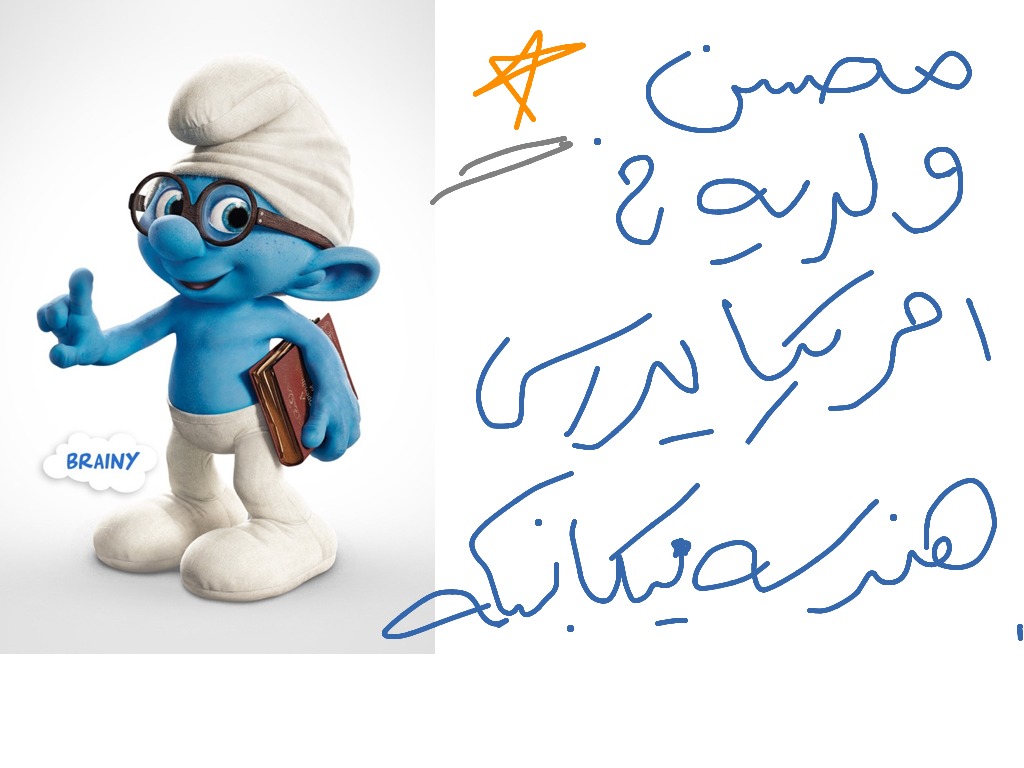٠ضيØØ© بوسي الرقاصة - Making Sense Of Digital Text
When stories pop up, especially ones that catch a lot of people's attention, like the talk about ٠ضيØØ© بوسي الرقاصة, there's a natural wish to get the whole picture. We want to read the words, see the facts, and form our own ideas about what's going on. It's a pretty basic human wish, to be honest, to just understand things as they are presented.
Sometimes, though, when you try to look up information, maybe about a topic that has everyone buzzing, you run into something a bit unexpected. Instead of clear sentences, you might see a jumble of strange symbols and odd characters, like what some folks experience with Arabic text that just doesn't show up right. It's a bit like trying to read a book where half the letters are missing or swapped around, and you're left wondering what the real message could be, so you are.
This kind of situation, where the words themselves become a puzzle, can make it really hard to follow any narrative, even one as potentially interesting as ٠ضيØØ© بوسي الرقاصة. It pulls you away from the story and makes you focus on the technical hiccup, which isn't what anyone wants when they're trying to simply read something. It's frustrating, to say the least, when the very words meant to share information turn into a barrier, you know?
- Kit Connor Leak
- Pbj %C3%A7 %C3%A7
- Skylar Mae Bg
- Christopher James Scalia
- Is Uzo Aduba Related To Whoopi Goldberg
Table of Contents
- Unraveling the Unreadable: Digital Text and Its Puzzles
- What Happens When Digital Words Get Scrambled?
- The Impact on Understanding Stories Like ٠ضيØØ© بوسي الرقاصة
- Can We Truly Grasp the Details of ٠ضيØØ© بوسي الرقاصة If the Words Are Jumbled?
- The Journey of Digital Language: From Keyboard to Screen
- How Do We Make Sense of the Digital Noise Surrounding ٠ضيØØ© بوسي الرقاصة?
- The Importance of Clear Information in Our Connected Lives
- What's the Real Story Behind ٠ضيØØ© بوسي الرقاصة When the Text Is a Puzzle?
Unraveling the Unreadable: Digital Text and Its Puzzles
Picture this: you're looking for information, perhaps something that has stirred up a lot of chatter, like discussions about ٠ضيØØ© بوسي الرقاصة. You click on a link, hoping to find clear, readable text, but instead, your screen shows a series of odd symbols. It might look something like "Øø±ù ø§ùˆù„ ø§ù„ùø¨ø§ù‰ ø§ù†ú¯ù„ùšø³ù‰ øœ øø±ù ø§ø¶ø§ùù‡ ù…ø«ø¨øª" or "ø³ù„ø§ùšø¯ø± ø¨ù…ù‚ø§ø³ 1.2â ù…øªø± ùšøªù…ùšø² ø¨ø§ù„ø³ù„ø§ø³ø© ùˆø§ù„ù†ø¹ùˆù…ø©." This is a pretty common issue, especially with languages that aren't based on the Latin alphabet, and it really can throw a wrench in your plans to simply read a piece of writing, you know?
These garbled characters are not just random. They are, as a matter of fact, a kind of digital misunderstanding. The computer or device you're using is trying to show text, but it's using the wrong set of instructions for how to display it. It's a bit like trying to play a music record on a video player; the information is there, but the way it's being interpreted just doesn't make sense for that specific device. This problem can happen with any kind of digital content, making it difficult to access the real meaning behind the words, apparently.
When this happens, it can be really frustrating. You have the title of something interesting, like "٠ضيØØ© بوسي الرقاصة," but the actual content is a visual mess. This isn't about the content itself being confusing; it's about the technical way it's being shown to you. It's a reminder that even in our connected world, the simple act of reading can sometimes hit a snag due to technical details that most of us don't think about much, so you see.
- Is Yuki Chiba Gay
- Sunnie Bunnie Xo
- Enulie Porer Leaks
- Rebecca Grant Twerking
- Tom Pennington Heart Attack
What Happens When Digital Words Get Scrambled?
When you see text that looks like a string of foreign symbols, it's typically a sign that the way the text was saved and the way your computer is trying to read it don't match up. Every character, whether it's a letter, a number, or a punctuation mark, has a specific digital code. When you type something, that code is saved. When you view it, your computer looks up that code to display the right character on your screen. But if the system trying to display the text uses a different set of codes than the one used to create it, you get those odd, unreadable characters, which is a bit of a problem, to be honest.
Think of it like speaking two different dialects of the same language. You both know the language, but certain words or phrases are pronounced or used differently. If one person speaks a word from their dialect and the other person interprets it using their own dialect's rules, it might come out as something totally different, or just not make sense at all. That's kind of what happens with text encoding; the digital "dialects" aren't matching up, and the result is a garbled message, you know?
This mismatch can affect anything from a simple email to a large document or even a website. If a website, for example, is set up to display Arabic text using one specific encoding method, but your browser tries to read it with another, you'll see those strange characters. This is why some people report seeing "القائمة البريدية: الببريد الإلكتروني: إشتراك إنسØاب مكتبة الكتب" instead of clear Arabic words. It makes getting any sort of actual information, like details about ٠ضيØØ© بوسي الرقاصة, pretty much impossible, so it is.
The Impact on Understanding Stories Like ٠ضيØØ© بوسي الرقاصة
When text appears as gibberish, it does more than just annoy you; it actually stops you from getting to the heart of any matter. Imagine trying to follow a discussion about something widely talked about, like ٠ضيØØ© بوسي الرقاصة, but all the words are a scramble of symbols. You can't read the statements, you can't understand the viewpoints, and you certainly can't form an informed opinion. It's like having a conversation where every other word is static, and you're left guessing at the meaning, which is really tough.
This issue goes beyond just personal frustration. For news outlets or information providers, if their content is not displayed correctly, their message simply doesn't get through. People might give up trying to read it, or they might even misinterpret what's being said because some parts are clear and others are not. This can lead to a lot of confusion and a lack of proper information spreading, especially when a topic is already sensitive or has many layers to it, you know?
The core purpose of writing is to share thoughts, facts, and feelings. When the very medium of that sharing breaks down, the whole point is lost. It means that even if someone has written a very important piece about, say, ٠ضيØØ© بوسي الرقاصة, if the digital presentation fails, that valuable information just doesn't reach the people it's meant for. It's a silent barrier that many people might not even realize exists until they bump into it themselves, so it is.
Can We Truly Grasp the Details of ٠ضيØØ© بوسي الرقاصة If the Words Are Jumbled?
Honestly, it's pretty much impossible to get a full picture of anything if the words you're reading are a jumbled mess. When you see text like "غø§ø¨øª ø²ù…ø§ù† ø¹ù† ø*ù„" or "بناية المهى Ø· الا رضي-ال٠نار ' it is showing بناية الÙ," your brain spends its energy trying to decode the symbols rather than absorbing the actual message. This takes away from your ability to focus on the content, which is a big deal when you're trying to understand a story, especially one that has generated a lot of public interest, like ٠ضيØØ© بوسي الرقاصة.
Without clear words, you're left with a lot of guesswork. You might try to infer what's being said based on a few readable parts, but that's not the same as getting the complete and accurate account. It's like listening to a radio station with bad reception; you catch bits and pieces, but the overall broadcast is lost in static. This means any nuance, any specific detail, or any subtle point about the topic, such as the specifics of ٠ضيØØ© بوسي الرقاصة, could easily be missed or misunderstood, so you see.
For something that might have various sides to it, or different perspectives, the clarity of the written word is absolutely key. If that clarity is compromised by technical issues, then the conversation around the topic becomes less informed. People can't discuss what they can't properly read, and that's a significant roadblock to public discourse. It pretty much means that the story, whatever it is, stays hidden behind a screen of unreadable characters, you know?
The Journey of Digital Language: From Keyboard to Screen
Every time you type a letter on your keyboard, that letter goes on a bit of a trip. It starts as something you see and recognize, then it turns into a numerical code inside the computer. This code is what the computer actually stores and sends around. When that code travels, say, from a website's server to your personal device, it needs to be packaged in a specific way. This packaging method is called character encoding, and it's basically the set of rules that tells computers how to turn those numbers back into the letters you can read. It's a very important step, really.
Different languages, especially those with unique scripts like Arabic, have their own particular ways of being encoded. Sometimes, older systems might use one set of rules, while newer ones use another. If a document created with an older set of rules is opened by a program expecting the newer rules, that's when you get the digital jumble. It's like trying to read a message written in an old form of shorthand when you only know the modern version; the symbols are there, but the interpretation is off, so you are.
This constant need for systems to agree on how to represent text is a pretty big deal behind the scenes of our digital lives. When everything works as it should, we don't even notice it. But when there's a mismatch, it becomes very apparent, very quickly. It's a reminder that even the simplest act of reading something online, whether it's a piece of news or a social media post about something like ٠ضيØØ© بوسي الرقاصة, relies on a complex system of agreements and standards, you know?
How Do We Make Sense of the Digital Noise Surrounding ٠ضيØØ© بوسي الرقاصة?
Making sense of garbled text often starts with recognizing the problem itself. If you're looking for information, perhaps about ٠ضيØØ© بوسي الرقاصة, and the text appears as "ملك الروابط أقسام مكتبة الكتب: كتب الشيعة كتب السنة كتب الكترونية برامج دينية," the first step is to realize it's a display issue, not an issue with the content itself being nonsense. Sometimes, simply refreshing the page or trying a different web browser can help, as different browsers might have slightly different ways of handling text encoding, you know?
For those who create content, especially in languages like Arabic, ensuring that their systems are set up to use a widely accepted and modern encoding standard, like UTF-8, is pretty important. This helps make sure that when someone views their content, it shows up as intended, without those frustrating symbols. It's about making sure the digital "language" is consistent from one end to the other, which is actually a pretty big job.
For regular readers, if you encounter this frequently, sometimes your operating system or browser settings can be adjusted to prefer certain character sets. While this might sound a bit technical, it's generally about telling your computer, "Hey, when you see text that looks like Arabic, try to read it using this specific set of rules." This can often clear up those strange symbols and let you finally read the actual words, which is what we all want when we're looking for information, like the full story on ٠ضيØØ© بوسي الرقاصة, so you see.
The Importance of Clear Information in Our Connected Lives
In a world where we get so much of our news and information from screens, the ability to read and understand what's put in front of us is absolutely essential. When text is garbled, it doesn't just make it hard to read; it breaks down the very foundation of how we share and receive knowledge. Clear communication helps us make decisions, stay informed, and feel connected to what's happening around us. Without it, things can get pretty confusing, pretty fast, you know?
Consider how quickly news travels today. A story, even something like the discussions around ٠ضيØØ© بوسي الرقاصة, can spread across the globe in moments. If that information gets distorted or becomes unreadable along the way, it loses its power to inform. People might end up with incomplete or wrong ideas, simply because the words themselves couldn't be properly displayed. It's a reminder that the technical side of things has a very real impact on our daily lives, so it does.
The goal, really, is to make sure that information is as accessible as possible for everyone, no matter what language it's in or what device they're using. When text displays correctly, it removes a significant barrier between the person sharing the information and the person trying to receive it. This allows for a much smoother flow of ideas and facts, which is something we all benefit from, honestly, when we're trying to stay up to date on any subject, large or small.
What's the Real Story Behind Ù Ø



Detail Author:
- Name : Fred Gerlach
- Username : wfranecki
- Email : frowe@gmail.com
- Birthdate : 1981-10-20
- Address : 5454 Kerluke Haven Mistybury, SC 99972
- Phone : 1-559-974-8913
- Company : Parker, Zieme and Koss
- Job : Biologist
- Bio : Corrupti eum quidem reiciendis voluptatem ut modi consequatur. Ut saepe reprehenderit libero omnis. Explicabo velit sed nobis quisquam.
Socials
instagram:
- url : https://instagram.com/hjones
- username : hjones
- bio : Non qui et corporis libero accusantium. Quam voluptatum inventore pariatur.
- followers : 3159
- following : 2445
tiktok:
- url : https://tiktok.com/@herminia.jones
- username : herminia.jones
- bio : Officiis omnis vero inventore error eum dicta ea sit.
- followers : 3087
- following : 1343
linkedin:
- url : https://linkedin.com/in/herminiajones
- username : herminiajones
- bio : Officia non vitae enim at omnis et repellendus.
- followers : 5660
- following : 1975
facebook:
- url : https://facebook.com/herminia_jones
- username : herminia_jones
- bio : Et ea ut aut vel. Nulla optio voluptatem fugiat quis aut non veniam.
- followers : 983
- following : 605
twitter:
- url : https://twitter.com/herminia.jones
- username : herminia.jones
- bio : Nostrum optio est nam quae. Ducimus perspiciatis aut omnis ipsam voluptate aut. Eos nisi quas delectus voluptatum harum. Voluptatum voluptas odio quo iure.
- followers : 4896
- following : 1179